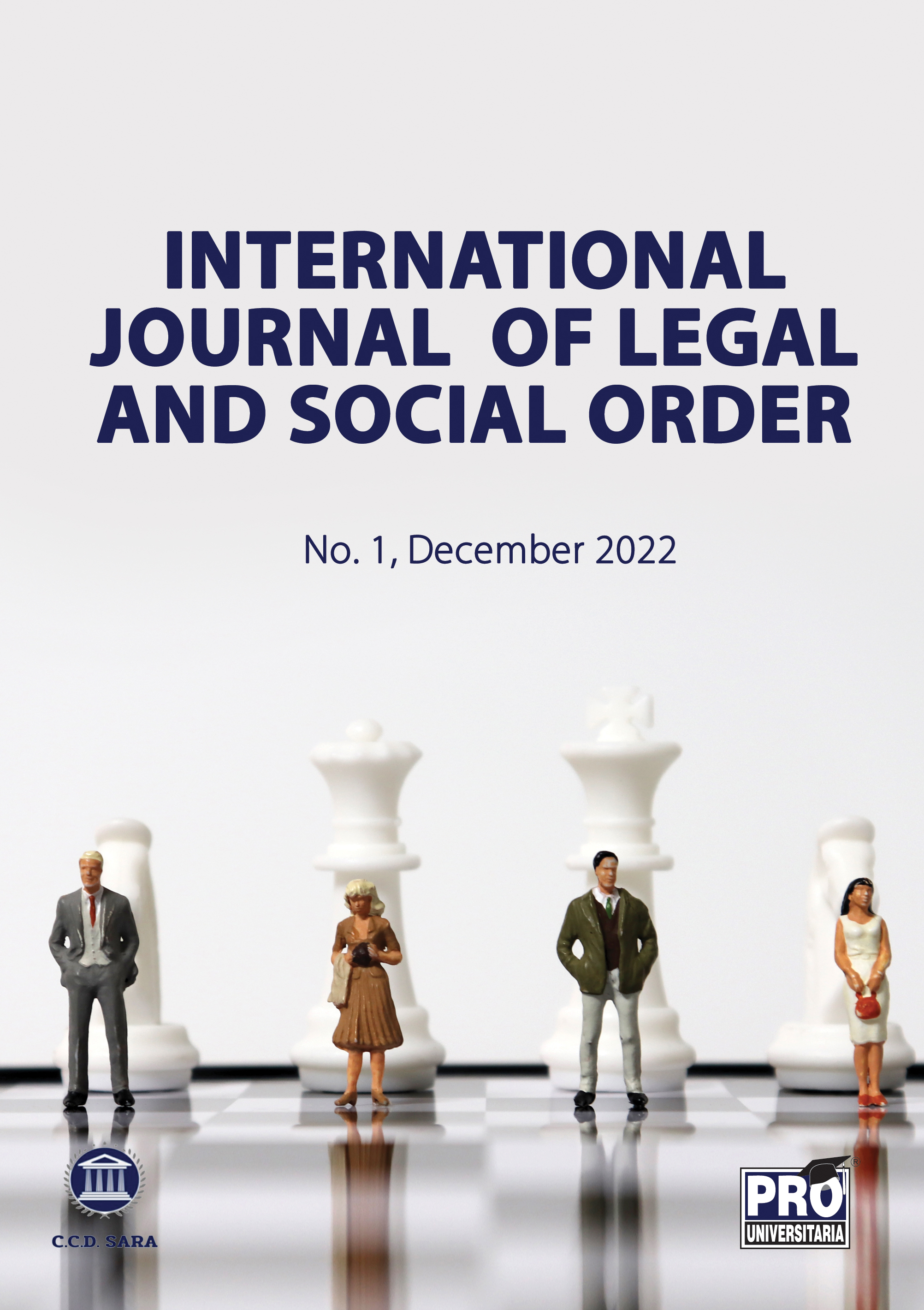FORMAL SOURCES OF INTERNATIONAL TRADE LAW. SPECIAL VIEW ON CUSTOM
DOI:
https://doi.org/10.55516/ijlso.v1i1.81Keywords:
custom; trader; normative usage; conventional usage; formal source.Abstract
In a period of time where the legal norm sought to cover by regulation all the fields of society, it could easily think that the custom has lost its relevance and its approach could only be done from a historical perspective. Such a conception is wrong because even at this time the customs have a special practical utility and even if they are apparently not widely used in business, it is necessary to know the rules regarding their operation and the effects they produce in the relations between the parties. The customary norm does not exclude the legal norm, they coexist in a relationship of complementarity. These are the basic parameters that form the basis of the present study through which we will analyze the custom and its role as a formal source in the regulation of international trade relations.
References
I. Boghirnea, A. Tabacu, The custom - a subsidiary law source, Supplement of Valahia University Law Study, 2011;
F.Cafaggi, Custom and law in transnational commercial contracts: A coevolutionary perspectiv, Transnational Commercial Law Review - TCLR (2022), Issue 2;
A-D Dumitrescu, Dreptul comerțului internațional, Editura C.H.Beck (publishing house), 2014;
N.E. Hegheș, The Romanian State and Law in the Medieval Period. Transylvania in the Voivodeship Era, http://rais.education/wp-content/uploads/2021/03 /Proceedings-of-the-21st-International-RAIS-Conference. pdfon Social Sciences and Humanities, Washington DC, USA, The Scientific Press, Cambridge, MA, 2022;
S. Ionescu, Justiție și jurisprudență în statul de drept, Editura Universul Juridic (publishing house), București, 2008;
I. Macovei, Instituții în contracte comerciale internaționale, Editura Junimea (publishing house), Iași, 1987;
C. Mătușescu, Consimţământul statelor la tratate. Mijloace juridice de exprimare, Editura Lumina Lex (publishing house), Bucureşti, 2003 ;
I. N. Militaru, Dreptul afacerilor. Introducere în dreptul afacerilor. Raportul juridic de afaceri. Contractul, Editura Universul Juridic (publishing house), București, 2013;
I. Rucăreanu, Curs de drept. Elemente de drept civil și comercial comparat, A.S.E., 1980 ;
A. Severin, Elemente fundamentale de drept al comerțului internațional, Editura Lumina Lex (publishing house), București, 2004 ;
D-A Sitaru, Dreptul comerțului internațional, Partea generală, Editura Universul Juridic (publishing house), București, 2008 ;
C.T. Ungureanu, Dreptul comerțului internațional, Editura Hamangiu (publishing house), 2018 ;
Elise Vâlcu, Dreptul comerţului internaţional. Curs universitar, Editura Sitech (publishing house), Craiova, 2008;
The Romanian Civil Code;
TCLR 2 - Centre for Commercial Law Studies (qmul.ac.uk);
Incoterms® rules history - ICC - International Chamber of Commerce (iccwbo.org);
ICC | International Chamber of Commerce (iccwbo.org);
WTO | official documents and legal texts.
Downloads
Published
How to Cite
Issue
Section
License
Copyright (c) 2022 International Journal of Legal and Social Order

This work is licensed under a Creative Commons Attribution-NonCommercial 4.0 International License.


